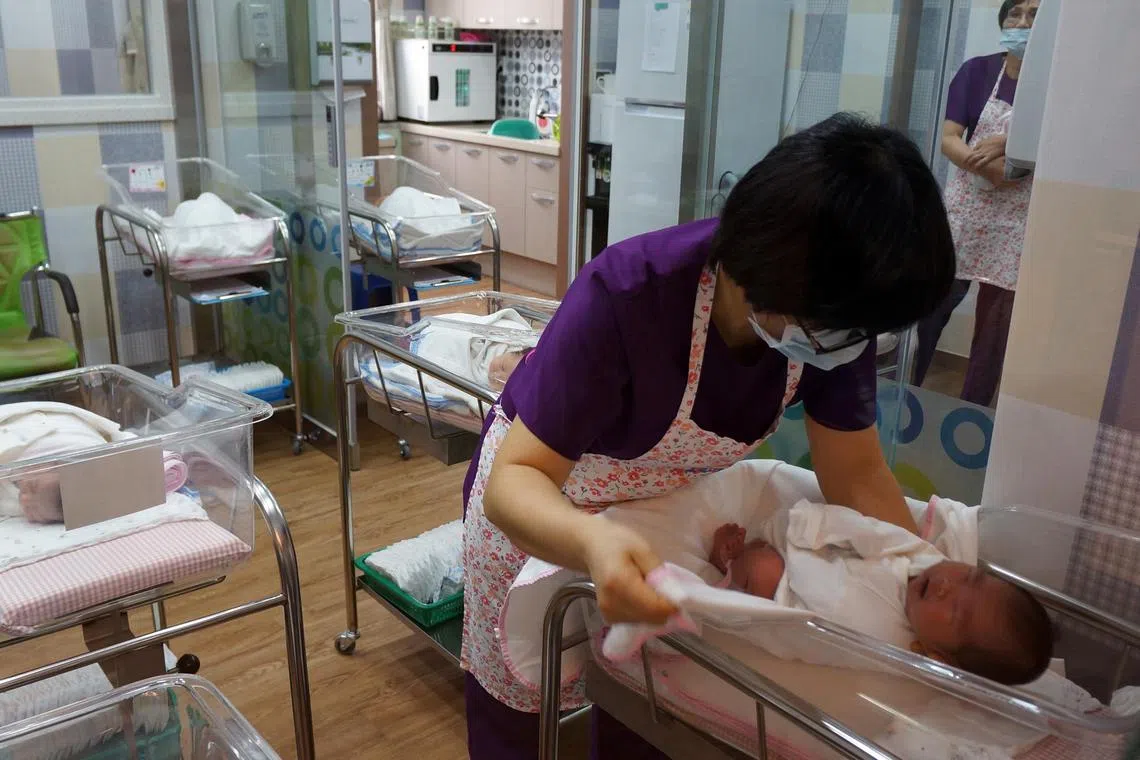Instagram partly to blame for South Korea’s record-low fertility rate, says star math lecturer
Sign up now: Get insights on Asia's fast-moving developments

Korea’s fertility rate dropped from 0.81 in 2021 to a new low of 0.78 in 2022.
PHOTO: ST FILE
Follow topic:
SEOUL - A star mathematics lecturer’s diagnosis on South Korea’s persistently falling birth rate,
In a video clip, uploaded to his YouTube channel, apparently from one of his lectures, Mr Chung Seung-je shared his thoughts on the plummeting birth rate.
He started with a question: “Koreans had more babies in the past when they were much poorer. Things have got a lot better now, but why do people have fewer babies?”
“Back when we were young, we didn’t know omakase dining and golf outings. Because we didn’t have Instagram,” he said, in his criticism of social media trends in which people “flex” or boast about their lavish, conspicuous consumption habits.
Mr Chung told his students not to believe what they see on Instagram.
“These kinds of posts make you think that others are better off than you. It makes you feel like you are the only one unhappy or you are incapable of raising children the way others do,” he said in his lecture.
The remarks from Mr Chung, who specialises in preparing students for college entrance exams and is one of Korea’s highest-earning lecturers, were echoed by many users online, especially couples in their 20s and 30s.
One Twitter user, revealing that he or she had recently tied the knot, shared: “Whenever I see celebrities raise their children in a luxurious apartment with a view of the Han River and send them to expensive private English pre-schools, I become afraid of having babies because I think I won’t be able to provide as much as others do for my child.”
Korea’s fertility rate dropped from 0.81 in 2021 to a new low of 0.78 in 2022,
During a March public hearing, organised by the Ministry of Health and Welfare, participants in their 20s and 30s cited a culture of constantly comparing oneself with others as one of the reasons behind young people not wanting to start families and have babies.
Among other reasons cited by the participants as having contributed to the nation’s chronic low birth rate were economic hardships, including housing issues, as well as the childcare burden faced by dual-career couples.
THE KOREA HERALD/ASIA NEWS NETWORK

